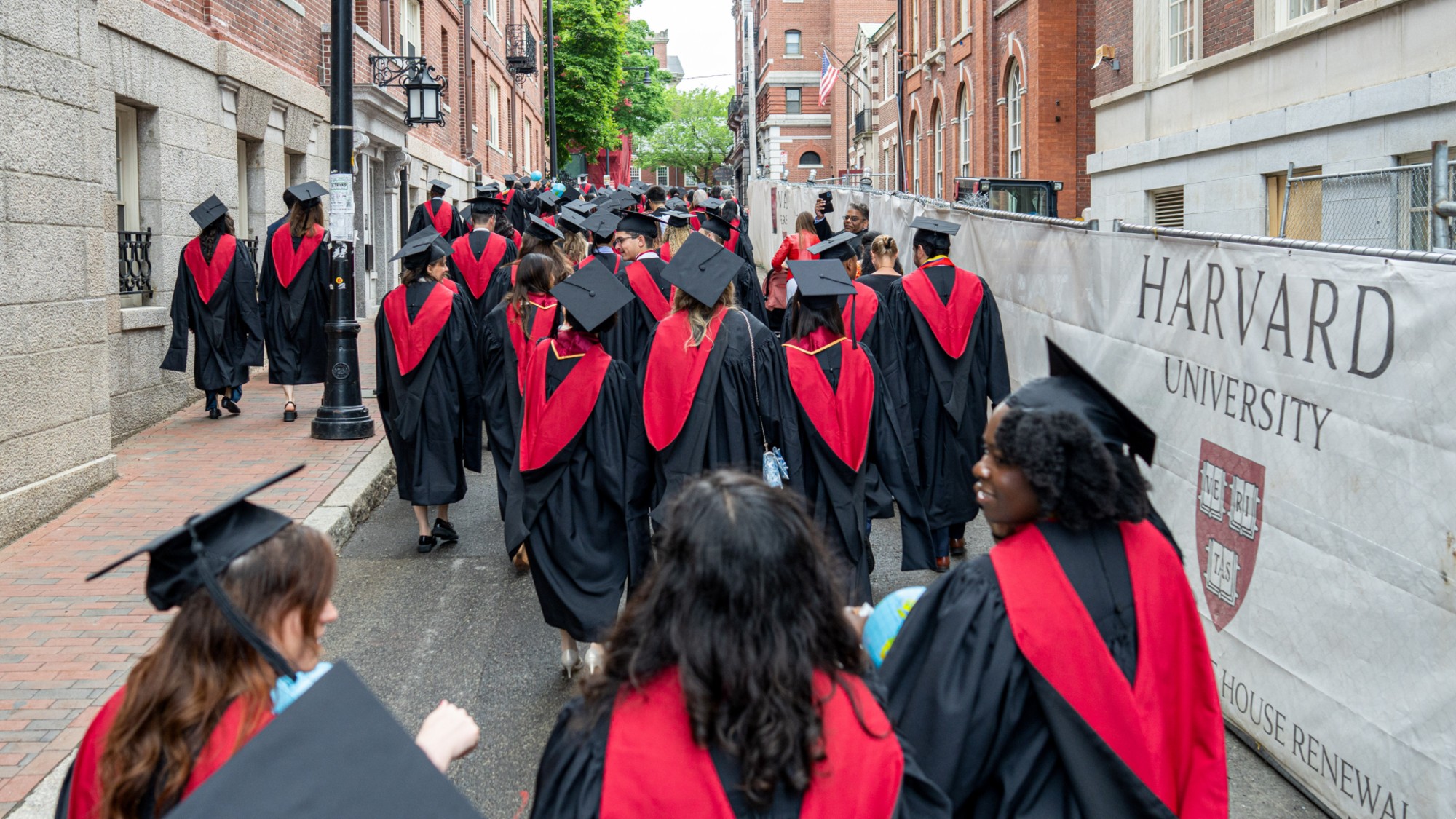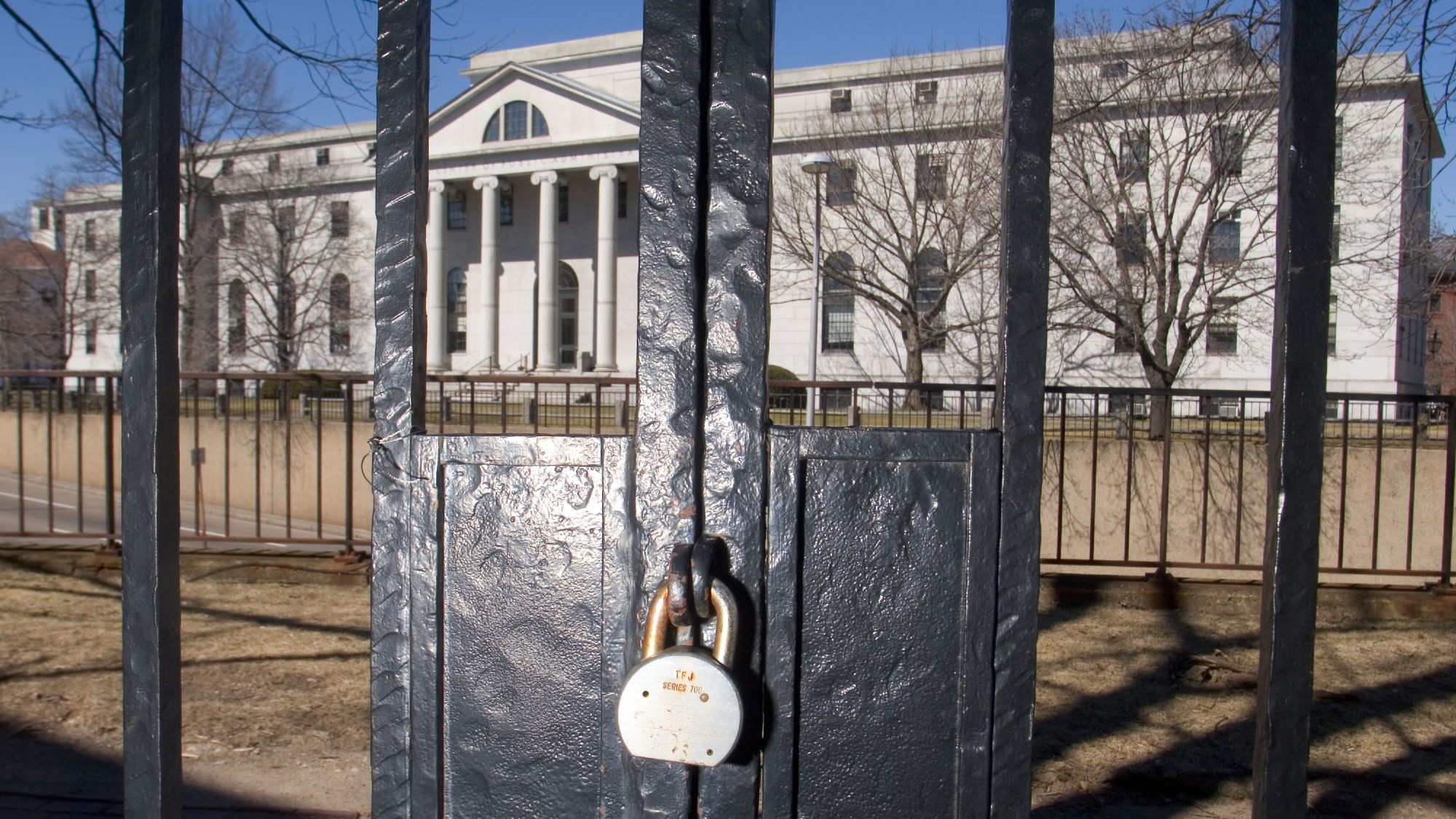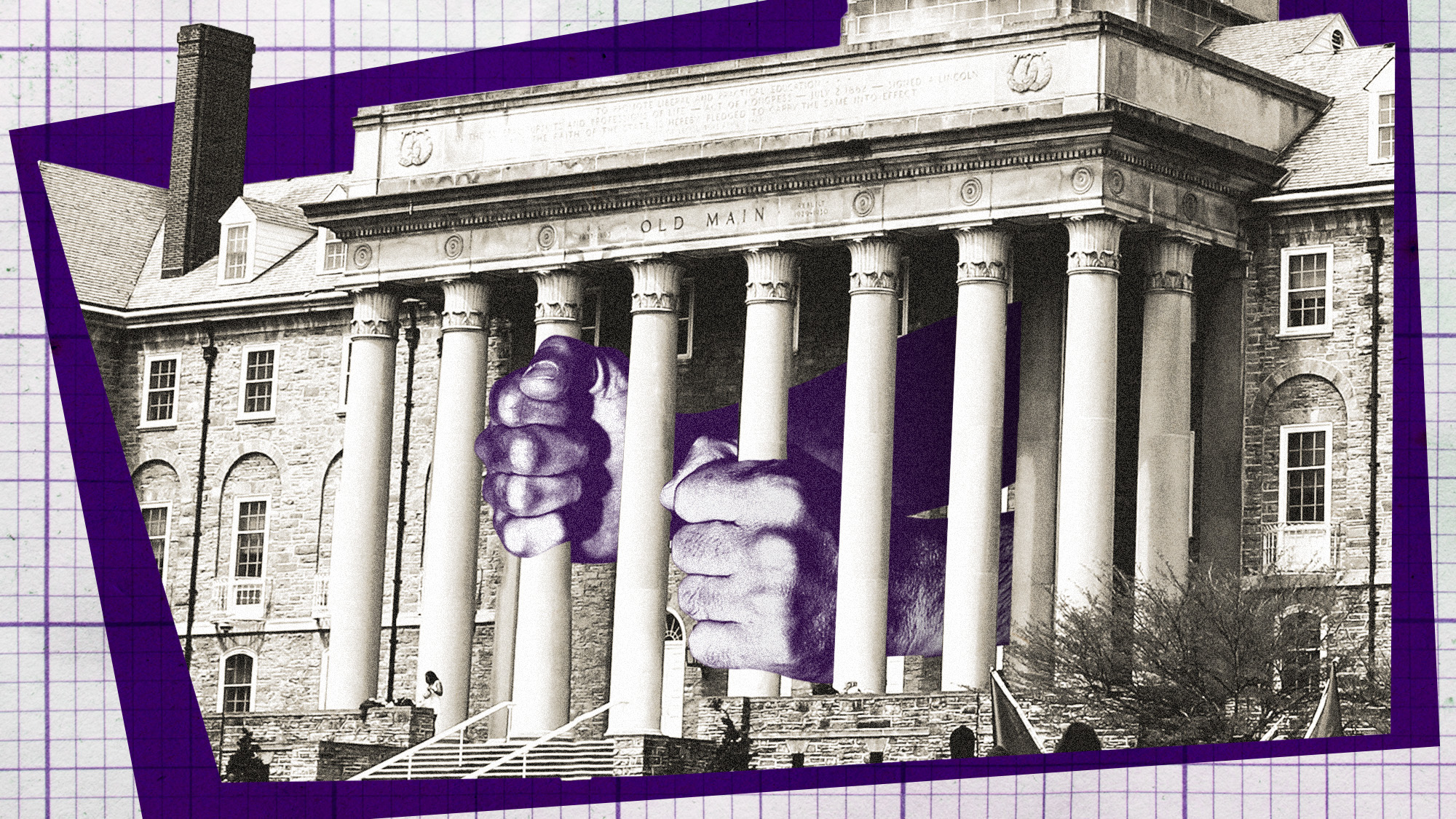Tuition fees 'should be cut', says two-thirds of public
Lord Adonis, a former Labour education minister, adds to calls for fees to be reduced

A free daily email with the biggest news stories of the day – and the best features from TheWeek.com
You are now subscribed
Your newsletter sign-up was successful
Two thirds of the British public think university tuition fees are too high and should be cut, or scrapped altogether, a new poll suggests. The finding adds to the pressure already on the Prime Minister to reduce fees.
What is the current situation?Earlier this year, the government announced plans to allow universities to increase tuition fees above the current £9,000 limit as part of an overhaul of funding.
Universities will be allowed to increase their fees in line with inflation from September next year. But, according to The Times, they will also be asked to volunteer for "Ofsted-style" assessments, which will eventually determine whether they are allowed to charge more.
The Week
Escape your echo chamber. Get the facts behind the news, plus analysis from multiple perspectives.

Sign up for The Week's Free Newsletters
From our morning news briefing to a weekly Good News Newsletter, get the best of The Week delivered directly to your inbox.
From our morning news briefing to a weekly Good News Newsletter, get the best of The Week delivered directly to your inbox.
How big is student debt?Debts are already "the highest in the developed world", says The Independent, "and will reach £57,000 for graduates from the poorest backgrounds, after maintenance grants were axed and replaced with loans".
According to the Student Loans Company, the total outstanding debt from UK student loans is £100.5bn - an increase of 16.6 per cent from 2016 and more than double the balance in 2012, when the cap on tuition fees rose to £9,000 per year.
While the figure is "eye-watering", says the BBC, it does not include what the government has written off from unpaid loans (due to graduates' low earnings and the lapse of time).
What does the public think?According to a BMG Research poll for The Independent, almost two-thirds of Britons want annual tuition fees to be slashed or scrapped. Sixty-five per cent want fees cut, with 34 per cent favouring a return to £3,000-a-year charges – the cost before 2012 – and 31 per cent wanting them axed altogether.
A free daily email with the biggest news stories of the day – and the best features from TheWeek.com
The poll shows even stronger support (68 per cent) for no longer charging interest on student loans. Annual interest is set at the Retail Price Index (RPI) plus three per cent, meaning it will rise to a substantial 6.1 per cent next month.
What next?Lord Adonis, the former Labour education minister, said the findings showed the game was up for the current fee system, with individual debts set to hit £100,000 once compound interest is added on.
"The university cartel to keep fees at £28,000 for a three-year course won't last," he said, having also described the system as "Frankenstein’s monster".
Research from the Sutton Trust has found that rising student debt is putting off more people from applying for higher education.
However, the government insists the loan system is "progressive" because lower-earning graduates have their debts written off after 30 years. Repayments only start once graduates are earning over £21,000 - and the government says this means more people from disadvantaged backgrounds can enrol in university.
In June, Channel 4 published analysis that suggested the Labour leader Jeremy Corbyn had been wrong to suggest that high fees were putting off working-class students. "The share of the same kind of students who came from disadvantaged neighbourhoods has risen from 9.6 per cent in 2009/10 to 11.3 per cent in 2015/16," it said.
-
 Political cartoons for February 20
Political cartoons for February 20Cartoons Friday’s political cartoons include just the ice, winter games, and more
-
 Sepsis ‘breakthrough’: the world’s first targeted treatment?
Sepsis ‘breakthrough’: the world’s first targeted treatment?The Explainer New drug could reverse effects of sepsis, rather than trying to treat infection with antibiotics
-
 James Van Der Beek obituary: fresh-faced Dawson’s Creek star
James Van Der Beek obituary: fresh-faced Dawson’s Creek starIn The Spotlight Van Der Beek fronted one of the most successful teen dramas of the 90s – but his Dawson fame proved a double-edged sword
-
 American universities are losing ground to their foreign counterparts
American universities are losing ground to their foreign counterpartsThe Explainer While Harvard is still near the top, other colleges have slipped
-
 ‘Ghost students’ are stealing millions in student aid
‘Ghost students’ are stealing millions in student aidIn the Spotlight AI has enabled the scam to spread into community colleges around the country
-
 The Trump administration’s plans to dismantle the Department of Education
The Trump administration’s plans to dismantle the Department of EducationThe Explainer The president aims to fulfill his promise to get rid of the agency
-
 Where will international students go if not the US?
Where will international students go if not the US?Talking Points China, Canada and the UK are ready to educate the world
-
 Colleges are canceling affinity graduations amid DEI attacks but students are pressing on
Colleges are canceling affinity graduations amid DEI attacks but students are pressing onIn the Spotlight The commencement at Harvard University was in the news, but other colleges are also taking action
-
 Can Trump ban overseas students from US universities?
Can Trump ban overseas students from US universities?Today's Big Question President's decision to revoke Harvard's access to database for admitting international students 'drastically escalates' the dispute
-
 America's academic brain drain has begun
America's academic brain drain has begunIN THE SPOTLIGHT As the Trump administration targets universities and teachers, educators are eying greener academic pastures elsewhere — and other nations are starting to take notice
-
 Is academic freedom in peril?
Is academic freedom in peril?Today's Big Question Faculty punishments are on the rise